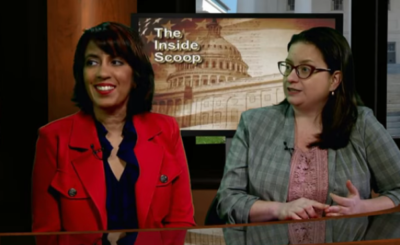City Center NOVA – Inclusive Housing
(April 22, 2019) Catherine Read sits down with Paula Manion of the City Center NOVA Steering Committee and Larysa Krautz, Chief of Staff for Melwood, an organization that creates thousands of jobs annually for people with Intellectual and Developmental Disabilities (IDD) in the Washington, DC metropolitan area.
There are many challenges for adults with IDD, and the lack of affordable and accessible housing is just one of those obstacles. When people with intellectual disabilities reach the age of 21, they hit a “cliff” in many aspects of life. Education, healthcare and housing become huge barriers, and people often rely heavily on parents and family for these resources. Many of these adults would prefer to live independently, however, there is a severe lack of housing available with the proper supports.
The Main Street housing project in Rockville, MD is aiming to change the approach to housing for adults with IDD. Main Street’s mission is to meet the urgent need for disability housing and programming with affordable, community centered spaces, and opportunities that promote inclusion, independence, and quality of life.
The Main Street project is the first-of-its-kind development in the Washington metropolitan area. It is a community-centered residential development where 25% of the units are being designed and designated for those with IDD. On course to be completed by 2020, Main Street seeks to be a model and a mindset – an affordable and inclusive community that offers social engagement, unparalleled accessibility and dynamic educational, vocational and therapeutic programming. Nonresidents may join as members and participate in community activities along with residents. In this way, the project will have an even broader impact beyond providing critically needed housing.
As a member of the City Center NOVA steering committee, Paula Manion is working hard to develop a similar type of development here in Northern Virginia. They are busy interviewing members of the community to ensure that the new development meets their needs, as well as fundraising and coordinating with local officials from both the county and the state. A project of this scope can only get off the ground as a public/private partnership.
This new approach to inclusive housing is an alternative to group homes, which are the most common form of housing currently available. Unfortunately, the waiting lists are very long, as there are more people who need housing then there are units available. These waiting lists can take up to 10 years to move through. Creating more options that are inclusive, such as Main Street and City Center NOVA, could be a positive way forward.
